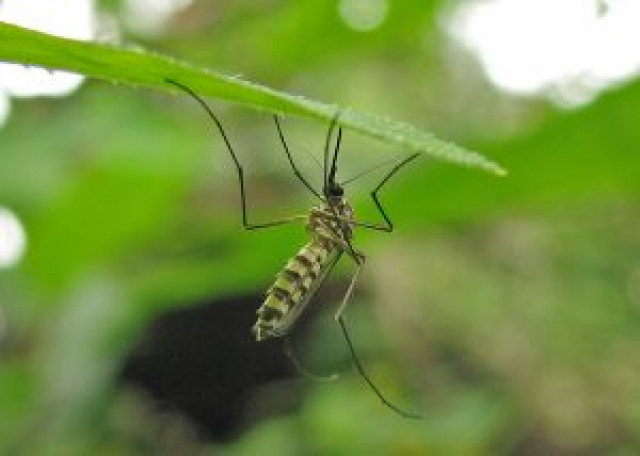Malaria plagues K-P in absence of adequate funding
No awareness campaign carried out this year.

World Malaria Day was first marked on April 25, 2007 to create awareness about the disease. PHOTO: FILE
World Malaria Day was first marked on April 25, 2007 to create awareness about the disease. While the day is marked with events across the globe, K-P was unable to hold any walk or awareness session due to a lack of funding.
After receiving limited resources from the provincial health department, the Malaria Control Programme’s project director has sought a total of Rs90 million before June 2015 in order to continue supporting treatment and diagnostic centres across the province. According to data obtained from the province’s Roll Back Malaria (RBM) programme office, 52, 152 people were found to be carrying traces of the disease.
“If we did not receive additional funding from the federal government, our programme would have closed down last year,” said RBM project director Dr Muhammad Asif. He added the poor assistance given by the provincial government compelled the programme to seek money from the federal government in order to save lives. Asif further said free diagnostic and treatment centres had been established in all districts across the province where anyone could come to get their blood tested for malaria.
Asif said Kohat, Bannu, Tank, DI Khan, Malakand, Swat, Shangla, Karak, Lakki Marwat, Swabi and Haripur have the highest number of malaria cases because of poor hygiene conditions. He added it was the responsibility of the health department along with the agriculture and cantonment boards to ensure that all areas are fumigated.
According to the RBM, malaria has a tendency of affecting the poorest segments, which constitute about 40% of the country’s population. The Malaria Control Programme was started in 1960 under the Malaria Eradication Programme. After the resurgence of the disease in the seventies, the programme strategy switched from a focus on eradication to emphasis on control. In 1985, the programme was decentralised and integrated into the primary health care infrastructure.
Malaria is a mosquito bourne disease caused by protists, a type of microorganism. It begins with a bite from an infected female mosquito, which introduces the protists microorganism through her saliva. Once in the blood, the protists travel to the liver to mature and reproduce. Malaria causes symptoms that typically include fever and headache, which in severe cases can cause death.
Published in The Express Tribune, April 26th, 2013.













COMMENTS
Comments are moderated and generally will be posted if they are on-topic and not abusive.
For more information, please see our Comments FAQ